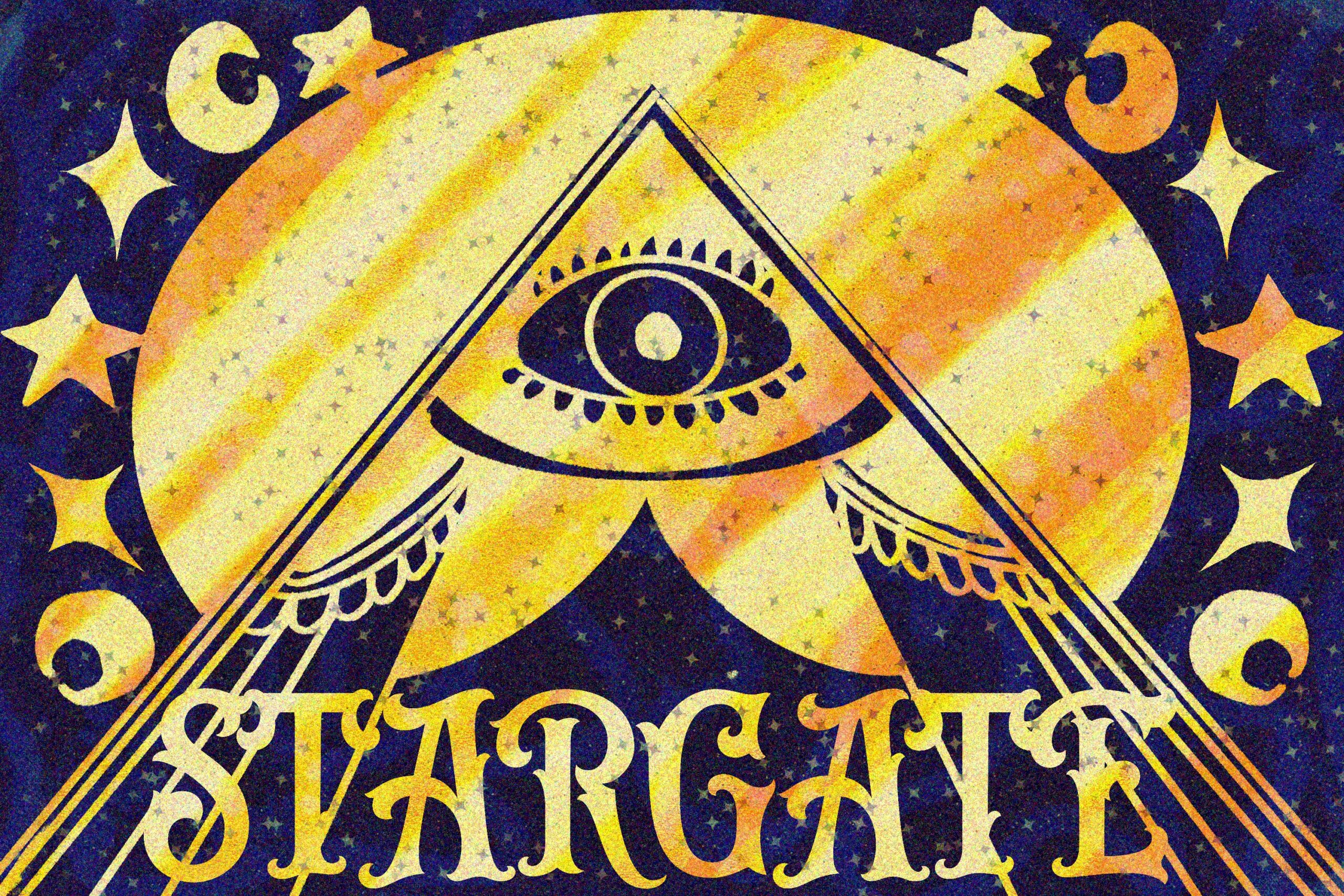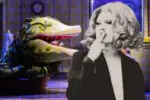In three separate television series spanning from 1997 to 2011, the “Stargate” franchise managed to deliver compelling sci-fi stories without taking itself too seriously.
Largely inspired by the 1994 film of the same name, the “Stargate” television franchise kicked off in 1997 with the release of the series “Stargate SG-1.” The show aired for ten seasons and became one of the longest-running sci-fi series in television history. The premise was simple: a team of soldiers and scientists explore the galaxy through a giant wormhole-creating device known as the ‘Stargate.’ They operate under a secret government program based in Cheyenne Mountain, a real location in the state of Colorado. This present-day, real-world setting granted the franchise the perfect opportunity to poke fun at existing sci-fi media, including itself.
One of the greatest vessels of self-awareness in “Stargate SG-1” was the recurring character Martin Lloyd, a regular civilian. Portrayed by the late Willie Garson, the character first appeared in the season 5 episode “Point of No Return.” Martin’s character grabbed the attention of the main characters when he claimed to know all about the top-secret Stargate Program. With a mission to discover how Martin learned about the Stargate, main protagonist Colonel Jack O’Neill flew out to Montana to meet with Martin at a diner. Martin told Jack everything he knew about the program and unwittingly summarized the basic premise of “Stargate SG-1.” To this explanation, Jack replied, “Sounds like a good idea for a TV show, if you’re into that sort of thing.”
Martin took this off-hand comment from Jack to heart in the sixth season episode “Wormhole X-Treme.” In the beginning of this episode, the main characters discover a new sci-fi show in production that eerily resembles the story of their own lives. They later find out that Martin is the one behind it. In fact, he sold the idea to a television studio and is now working on set as a creative consultant. When Jack visits the set of the show to speak with Martin, viewers are able to witness a hilarious parody of sci-fi television production.
Throughout the episode, Martin is repeatedly second-guessed and overruled by other members of the production team—most of whom are played by actual directors, writers and executives involved in “Stargate SG-1.” The director of the fictional show is portrayed by Peter DeLuise, who actually directed numerous episodes of “Stargate SG-1.”
The star of the fictional show is portrayed by DeLuise’s brother Michael Deluise. Even the then-president of MGM Television, Hank Cohen, made a cameo in the episode. He delivered a line in which he asks the producers to introduce a new, attractive female alien to the cast. It would later be explained by writer Paul Mullie, that the very line was written just to make fun of Cohen for making that same suggestion two seasons prior.
In another scene, Martin interrupts a discussion between the director and the star of the show about a particular weapon. The weapon is an obvious parody of the zat’nik’tel, a device invented by the writers and used by the characters of “Stargate.” After establishing that one shot from the weapon stuns and a second shot kills, Martin suggests that a third shot makes the victim disintegrate. This describes the actual function of the zat’nik’tel as it is used throughout the “Stargate” franchise. However, the fictional director is dissatisfied with Martin’s suggestion. He replies, “I’m gonna pretend you didn’t say that because that is quite possibly the stupidest thing I have ever heard you say.”
Aside from the obvious self-parodies made in “Wormhole X-Treme,” the episode also takes a few lighthearted jabs at sci-fi in general. One great example is a scene between Martin and the prop manager. Martin catches the prop manager carrying a basket of apples and instructs him to create a more exotic, alien-looking prop for the scene. When Martin asks the prop manager if he thinks aliens eat apples, the man replies, “Why not? They speak English.” Like many other sci-fi series, all of the aliens that appear in “Stargate SG-1” happen to speak English as well. Another humorous jab at popular sci-fi tropes appears in a conversation between Martin and one of the fictional show’s stars about an inconsistency in one of the scripts.
Referencing a script where her character is able to walk through walls and other solid matter, she asks why she doesn’t fall through the floor too. Martin, unable to answer the question, says he’ll get back to her on that. This exact trope and inconsistency appears in two “SG-1” episodes, as well as a “Star Trek: The Next Generation” episode titled “The Next Phase.”
Additionally, “Wormhole X-Treme” cleverly presents commentary on the general nature of television production and hierarchies on set. After being scolded by the director for an unwanted suggestion, Martin notices a staff writer listening in on the conversation. He yells at the writer, “Why are you even on set? Go write something!” The meek staff writer is played by executive producer Robert C. Cooper. Cooper wrote many episodes of “Stargate SG-1,” including another very self-aware episode titled “Citizen Joe.”
The season 8 episode “Citizen Joe” follows the story of civilian Spencer’s life over the years. Early in the episode, Joe accidentally learns about the Stargate Program by touching a device that links his mind to Jack’s. He begins to mentally witness all of Jack’s adventures through the Stargate as if he were watching a television show. As the episode progresses, it becomes clear that Joe resembles a personification of the whole “Stargate” fanbase.
In an exaggerated parody of “Stargate” fans’ reactions, Joe falls to his knees and breaks down into tears when he witnesses the death of one of the series’ main characters. He later rejoices when the character comes back to life and runs straight home to tell his wife the good news. When meeting the main characters of the show, Joe continues to reflect fans’ feelings through his remarks. He tells Daniel Jackson, who was absent for most of the seventh season, that his replacement Jonas was great but it just “wasn’t the same” without him. Joe speaks for all fans pertaining to a possible relationship between Jack O’Neill and Samantha Carter when he tells Sam he disapproves of her new boyfriend.
Out of every “Stargate” episode that features parodies and self-aware jokes, no episode does the job quite as well as the series’ 200th episode. Simply titled, “200,” the season 10 episode warmly welcomes the return of Martin Lloyd. Martin visits Stargate Command in Cheyenne Mountain, looking for new ideas for a “Wormhole X-Treme” movie. He sits down and takes suggestions from the main cast, now joined by Ben Browder and Claudia Black of the Australian-American sci-fi series “Farscape.” As the characters pitch and discuss their ideas, viewers are treated with vignette scenes of the main cast portraying characters in various parodies of sci-fi series and other culturally significant media.
The “Star Trek” franchise is among the media that is parodied. “Stargate” even uses sound effects from “Star Trek: The Original Series” to make the comparison obvious. If that wasn’t clear enough, main character Daniel Jackson complains to Martin, “First, of all, that’s ‘Star Trek.’” The tragically short-lived, cult classic series “Firefly” is the butt of two more subtle jokes.
Black’s character Vala Mal Doran revisits her past as a thief when she suggests many ideas she stole from existing media. She tries Martin’s patience when she attempts to pitch the plot of “The Wizard of Oz” to him. He explains to her that, if she wants to copy someone else’s idea, she needs to choose something more obscure. This conversation leads into a parody scene of Black and Browder’s “Farscape.” Black reprises her role as Aeryn Sun while Browder’s character John Crichton is played by their “Stargate” castmate Michael Shanks. It is a treat to watch Black and Browder pay tribute to their old TV show while joking about its obscurity.
What makes “200” a great episode is how the “Stargate” writers remember to make it a tribute to the fans as much as it is to the show. A line from Browder’s character Cameron Mitchell is a highlight of the episode: “Never underestimate your audience. They’re generally sensitive, intelligent people who respond positively to quality entertainment.”
“Stargate” did not simply see its fans as consumers. Rather, the franchise saw its fans as friends to share inside jokes with. This is what made the humor of “Stargate” so unique and charming. “Stargate SG-1” is followed by two spinoffs, “Stargate Atlantis” and “Stargate Universe.” While these two shows are shorter than their parent series, they have their fair share of sci-fi jokes and pop culture references. Dutifully, they carry on the “Stargate” legacy as sci-fi’s most self-aware franchise.
Watch Season 1-10″Stargate SG-1″ on Prime Video now.

















